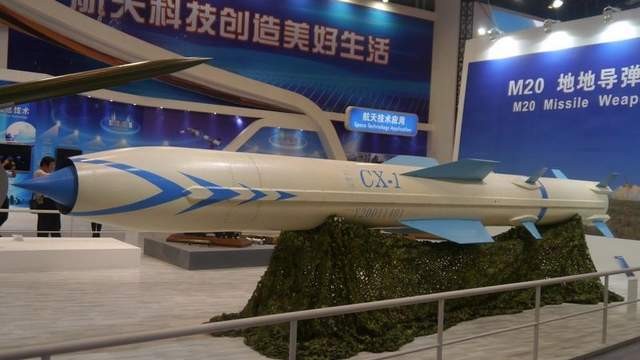China's new Chaoxun-1 (CX-1) supersonic anti-ship cruise missile is now ready for export to other countries, according to Defense News, a global news source on military and government matters.
The CX-1 missile, developed and built by the Chinese Academy of Launch Technology (CALT), or the so-called "1st Academy," which is a subsidiary of the China Aerospace Science and Technology Corporation (CASC), was on display during the recently held Zhuhai Airshow.
According to the CASC brochure, the CX-1 is a two-stage ASCM with a range of up to 280 kilometers while carrying a 260-kilogram warhead, thus compliant with the Missile Technology Control Regime (MTCR) and exportable.
As represented, the missile also has a circular error probability of 20 meters, and high-altitude speeds of Mach 2.8-Mach 3.
The CX-1 comes in two variants: the ship-launched CX-1A and the ground-based road mobile CX-1B. Although the ASCM was designed primarily to target ships, it reportedly also has a second, land-attack function.
At Mach 3 speeds, the missile can strike a target within a circular error probability of 20 meters, according to the display poster at the exhibit wall. Warheads include a unitary semi-armor-piercing warhead for ships and a unitary fragmentation-blast warhead and unitary penetration warhead for land attack.
A single road-mobile launcher carries two missiles. When attacking a slow target, such as a ship, the missile can make a terminal horizontal attack by combining high and low cruise and employ the compound guidance of a strap-down inertial measurement unit and active radar seeker, explains the poster at the exhibit.
The CX-1 on display at the Zhuhai Airshow, according to Aviation Week, is apparently the CX-A variant, a ground-launched anti-ship cruise missile that can be used in concert with short-range ballistic missile and artillery rockets, cued by unmanned aerial vehicles.
The other version, the CX-1A, which can be vertically launched from ships and submarines, was not displayed during the exhibit.






















